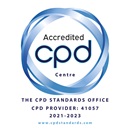28 November 2022
Battery recycling (Energising the UK Battery Supply Chain - Part 8)
Organised by:
SCI’s Materials for Mobility Group
Online Webinar: 14:00 - 16:00
Registration Closed
This event is no longer available for registration.
Synopsis
Battery recycling
The government’s targets on production of electric vehicles to achieve net zero, mean the demand for battery materials will be exceptionally high. Recycling will likely be key in helping to meet these demands. We will also need to cut carbon emissions and reduce the amount materials going to waste. This could give the UK an opportunity to reduce spending on importing materials and improve the supply chain security. Ultimately a circular economy for batteries will be vital in preventing current climate change solutions from causing more problems.
SCI have organised a programme of speakers from members of this community. This workshop will consist of 3 talks from companies involved in battery recycling as well as other areas of interest within the battery materials supply chain. These talks will be followed by breakout discussions between participants, enabling them to meet others working in the supply chain, and discuss what is needed for the future of this community.
Energising the UK battery supply chain series – Introduction
A major focus of SCI’s work with the Chemistry Council recognises that the government, in its Road to Net Zero, is banning the sale of all internal combustion engines by 2030. We must therefore act rapidly to scale-up an integrated UK battery supply chain, to adequately support the bourgeoning electric car industry.
As part of our programme to deliver this, SCI is bringing together chemists, suppliers, manufacturers and innovators at every point within the supply chain, and in doing so building a community that will address the challenges of scaling-up of electric vehicle production within the UK.
From the previous workshops we have built a team of around 70 organisations from industry and government who have come together to explore and identify the needs of this community, and discuss how they can work together on this challenge. Common themes identified in these workshops include:
- Scale-up at speed
- Developing standards and skills
- Next generation technologies
- Battery recycling
Attendees
This workshop is primarily designed to engage those actively working in or with the battery production industry, or policymakers whose decisions may affect it. Spaces are limited – therefore, if you are new to the ‘Energising the UK battery supply chain series’, and wish to attend this workshop, please send a 50–100-word description of your work to callum.yong@soci.org, outlining how you fit into one of the above stakeholder categories.
Speakers

Dr Anwar Sattar
Warwick Manufacturing Group
Anwar Sattar is a Principal Engineer in Battery Recycling, Re-use and Remanufacture at Warwick Manufacturing Group, University of Warwick. He leads WMG’s battery recycling group which aims to develop next generation battery recycling technologies to establish a safe, efficient and profitable battery recycling industry in the UK. He is a Chemical Engineer by training and has a PhD in Hydrogen and Fuel Cells. He was one of the lead authors for the RECOVAS project which will install a shredding and material separation plant in the UK and develop safety protocols for battery recycling.

Roger Morton
European Metal Recycling
Roger is a chartered chemical engineer. He has worked in the recycling sector for the past 20 years. He co-founded Axion Consulting and Axion Polymers in 2001. Over the 20 years prior to forming Axion he held general management positions in chemicals, textiles and building materials.
Roger left Axion in mid 2019. He joined European Metal Recycling in March 2020 as Managing Director for Technology and Innovation. He leads EMR’s initiatives in battery and electric vehicle recycling, reusable steel for construction, new recycled steels to support decarbonisation of bulk steel production and recycling of wind turbines and other renewable energy assets.

Sarah Colbourn
Benchmark Mineral Intelligence
Sarah Colbourn is an ESG Research Analyst at Benchmark Mineral Intelligence. She leads Benchmark’s recycling research and quarterly publishing of Benchmark’s Recycling Forecast which provides the long-term outlook of battery recycling from production scrap and end-of-life (EOL) batteries. Sarah’s analysis also covers the environmental, social and governance (ESG) risks and opportunities across the lithium-ion battery supply chain, with a particular focus on ESG credentials of upstream extraction and processing.
Programme
Monday 28 November
- 14:00
- Welcome and introduction
David Bott, SCI - 14:05
- Developing a Battery Recycling Industry in the UK
Anwar Sattar, WMG - 14:20
- Closing the loop on the battery supply chain
Sarah Colbourn, Benchmark Mineral Intelligence - 14:35
- Building a safe and commercially viable circular supply chain for batteries in the UK
Roger Morton, EMR - 14:50
- Breakout discussions
- 15:30
- Closing remarks
Accessibility Grants
SCI accessibility grants are available to support SCI members with disabilities, long term health conditions, those who require a carer, and members who are nursing parents to attend SCI events. Download an application form to apply for a grant.
Fees
Become an SCI Member and save on this and future events
See Membership OptionsSign up as an Event Member to join this event. SCI Full or Student Members receive discounts on event registrations
Booking Process/Deadlines
CPD Info
SCI Members attending this meeting are able to claim CPD points.
Contact
Conference team
Tel:+44 (0)20 7598 1561
Email: conferences@soci.org





